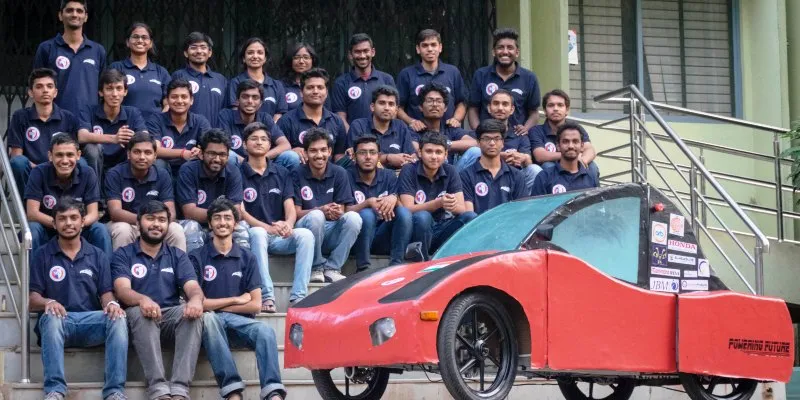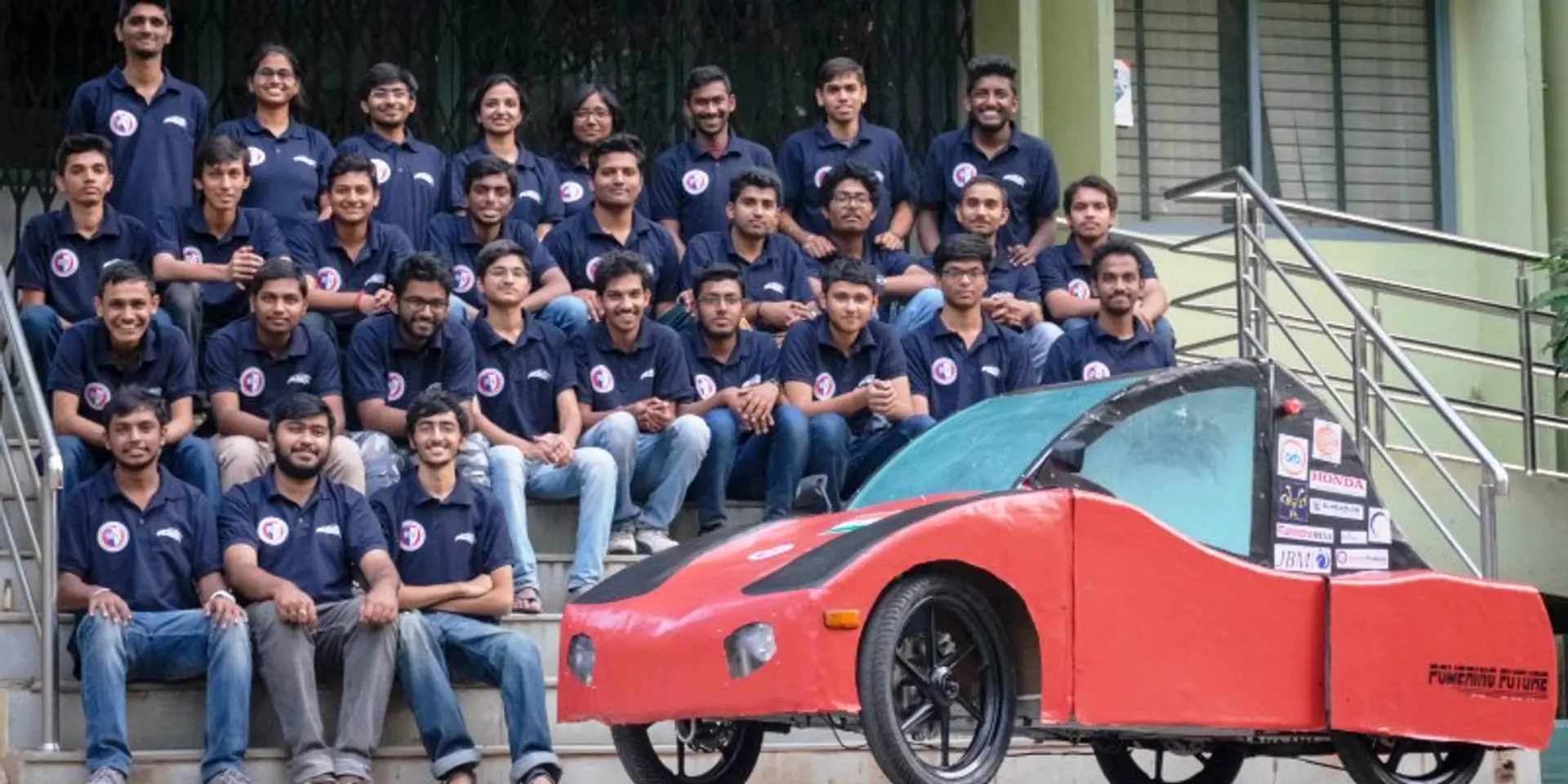Putting sustainability in the driver’s seat, Project Garuda fashions battery electric vehicles with high efficiency, zero fuel wastage
The prototypes and urban concept vehicles designed by Team Project Garuda thus far have created a pathway towards sustainable mobility.

With most of present-day transport being fully reliant on fossil fuels, it's no surprise that global warming is becoming an increasingly alarming reality. In addition, this high dependency on fossil fuels for almost all activities promises a day, not far, when the world will witness an end to the fossil fuel era.
This real-time threat necessitates the move to address the mode of mobility in an urgent manner with a shift to sustainable sources of energy that have minimal impact on the environment but promise high efficiency.
It was this need for cleaner energy that drove the eight-member student group from RV College of Engineering, Bengaluru to participate in the Shell Eco Marathon (SEM) right from 2008 up unto the 8th edition of the contest to be held in Singapore this year. They have taken up the responsibility to find alternative energy sources to meet the ever-growing demand, and as transportation is an important factor determining the advancement of civilisation, they want to be at the forefront of the ongoing transformation and do their best to create a greener, better future.
In line with Shell’s vision
Project Garuda’s beginnings can be traced to 2006, when eight classmates decided to set up a team to showcase India’s student engineering talent to the rest of the world and contribute to a sustainable future. As engineering students, they were eager to innovate and build ideas not limited to just manufacturing cars, but also take a stab at creating a better future.
Learning that just like their team, Shell too believed in the power of collaboration to drive progress through clean and sustainable energy solutions, Project Garuda designed their first ever prototype as part of the SEM 2008. “With our vision in line with Shell’s, ever since 2008, we have sought to work together for a brighter and cleaner future. Our first ever gasoline prototype was called the ‘Black Coffin’, with a mileage of 200 kmpl. The Black Coffin was a milestone moment in Project Garuda’s history, and inspired the team to work towards better and more efficient cars,” explains Nayana Jambhe, 21, Team Manager.
“And as this year's contest tagline states ‘Make the Future,’ we believe that it is the responsibility of the youth, and particularly engineering students, to innovate and make the future worth living. This need of cleaner energy is what the future demands and the key to unlock it lies in collaboration,” she adds.
10 years of constant evolution
With a focus on the creation of efficient automobiles that offers the comfort level of a four-wheeled vehicle and the mileage of a two-wheeler, Project Garuda has produced seven working prototypes and three urban concept vehicles till date.
“Since Black Coffin, we have been regulars at Shell eco-marathon events in the UK and Malaysia. Each year, the competition gives us exposure to Shell’s mentorship, along with the opportunity to learn from other Asian teams, resulting in significant improvements in our prototypes,” says Nayana.
The platform provided by Shell has helped the team strive for excellence each year and boost the mileage of their prototype cars from 180 kilometre per litre to the prototype Zeus 2.0 that clocked a mileage of over 400 kilometre per litre. Moreover, in 2012, Project Garuda was the first Asian team to participate with two vehicles in different categories and the only Indian team to finish the Shell Eco-marathon–Asia at Sepang International Circuit, Malaysia. They ranked 14th in the electric prototype category of Shell Eco-marathon 2012, and were also the first Indian team to clock a mileage at an international event.
A change for the better
In the year 2017, global conversations revolved around imbibing electric mobility in India as well as in the global marketplace. As electric vehicles began gaining importance because of their higher energy conversion efficiency and low emission rates, the team wanted to demonstrate that they possessed the capability to design these vehicles. As a result, this led to a shift in the energy category and Project Garuda was the only Indian team to participate in the ‘Battery Electric Urban concept’ category at the Shell Eco-marathon 2017.
Elaborating on the cause for the switch, Nayana says, “We shifted to electric vehicles due to the alarming rate of fossil fuel depletion over the last decade, triggering the urgency to switch to renewable and sustainable sources of energy. This idea marked the change in Project Garuda’s legacy leading us to move from gasoline urban concept vehicles to battery electric urban concept vehicle.”
To define the future of mobility
Project Garuda, which built electric and gasoline prototypes, along with a gasoline urban concept, is currently involved in developing an urban concept battery electric vehicle promising high efficiency and zero fuel wastage.
The present prototype called VAJRA (Urban Concept, under SEM rules), weighs about 130 kg. Explaining its standout features Nayana says that the vehicle’s base is made of aluminum, while the super structure is made of carbon fibre, making the it both sturdy and lightweight. And while including an innovation every year, by making each prototype unique, has turned into the team's trademark, this year they have implemented a bi-free wheel differential, which can save energy while cruising. Also, designed with additional technologies like Thermal Barrier Coating (TBC) and three phase motor controllers, this electric car aims at defining the future of mobility.
The team is all set to be part of the second phase at SEM. Nayana says, “Our goal is to keep at three things: improve our designs, bring awareness among people about the environment and how much mobility affects it and, finally, also educate them to use resources that do not damage the environment.”







